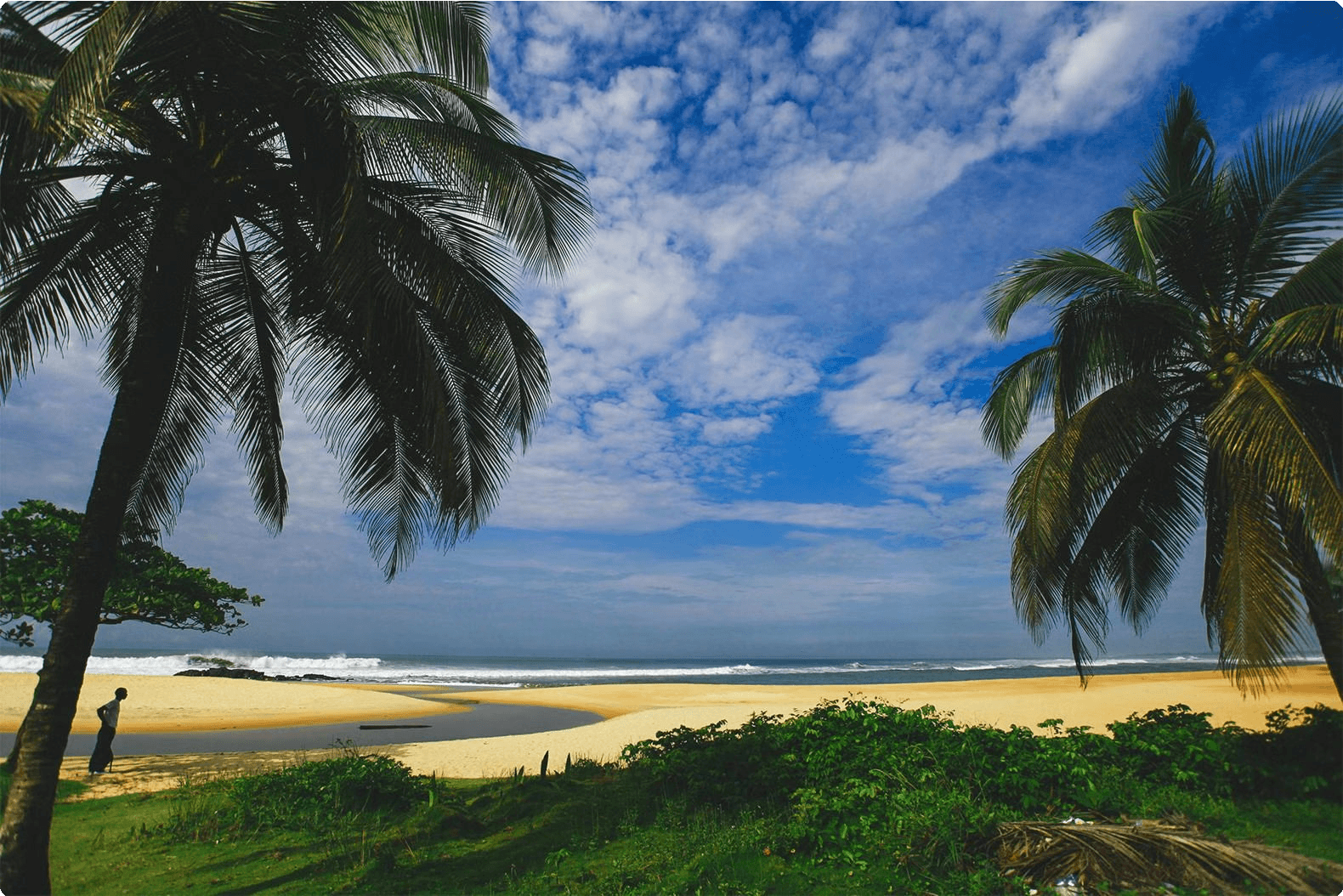Liberia
Discover Liberia
Liberia is a country located on the west coast of Africa, bordered by Sierra Leone, Guinea, and Ivory Coast. It is known for its rich history, vibrant culture, and diverse natural landscapes. The country’s capital, Monrovia, is a bustling hub of activity and a melting pot of cultures.
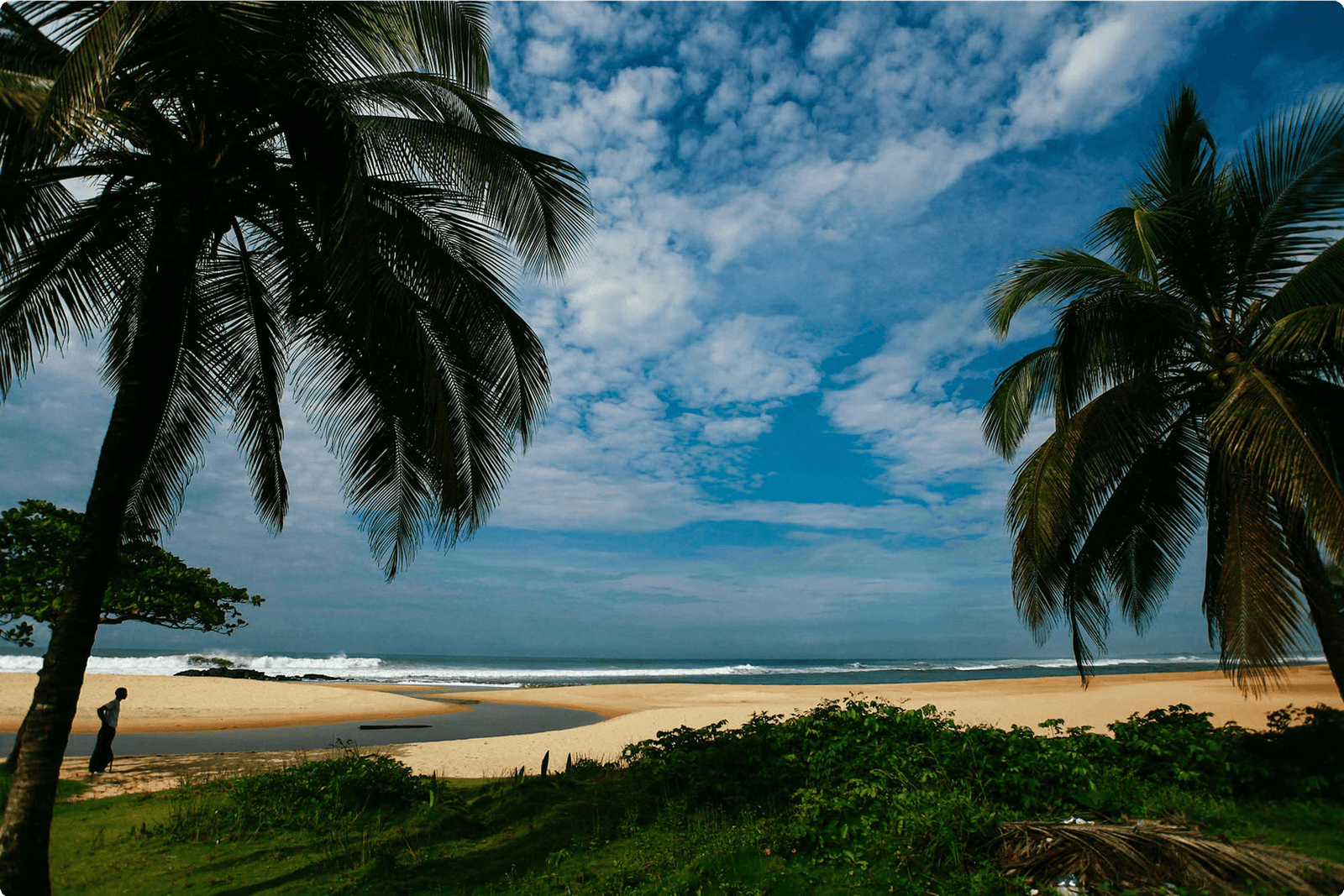
Liberia’s unique blend of traditions and customs is reflected in its colorful festivals, traditional dance performances, and delicious cuisine. The country’s flag, with its striking design and symbolism, is a proud representation of its national identity.
National Flag and Its Meaning
The national flag of Liberia consists of eleven horizontal stripes, five red and six white, representing the eleven signers of the Liberian Declaration of Independence. The blue square in the upper left corner features a white five-pointed star, a symbol of African freedom. The flag’s red and white stripes symbolize courage and moral excellence, while the blue square represents fidelity.
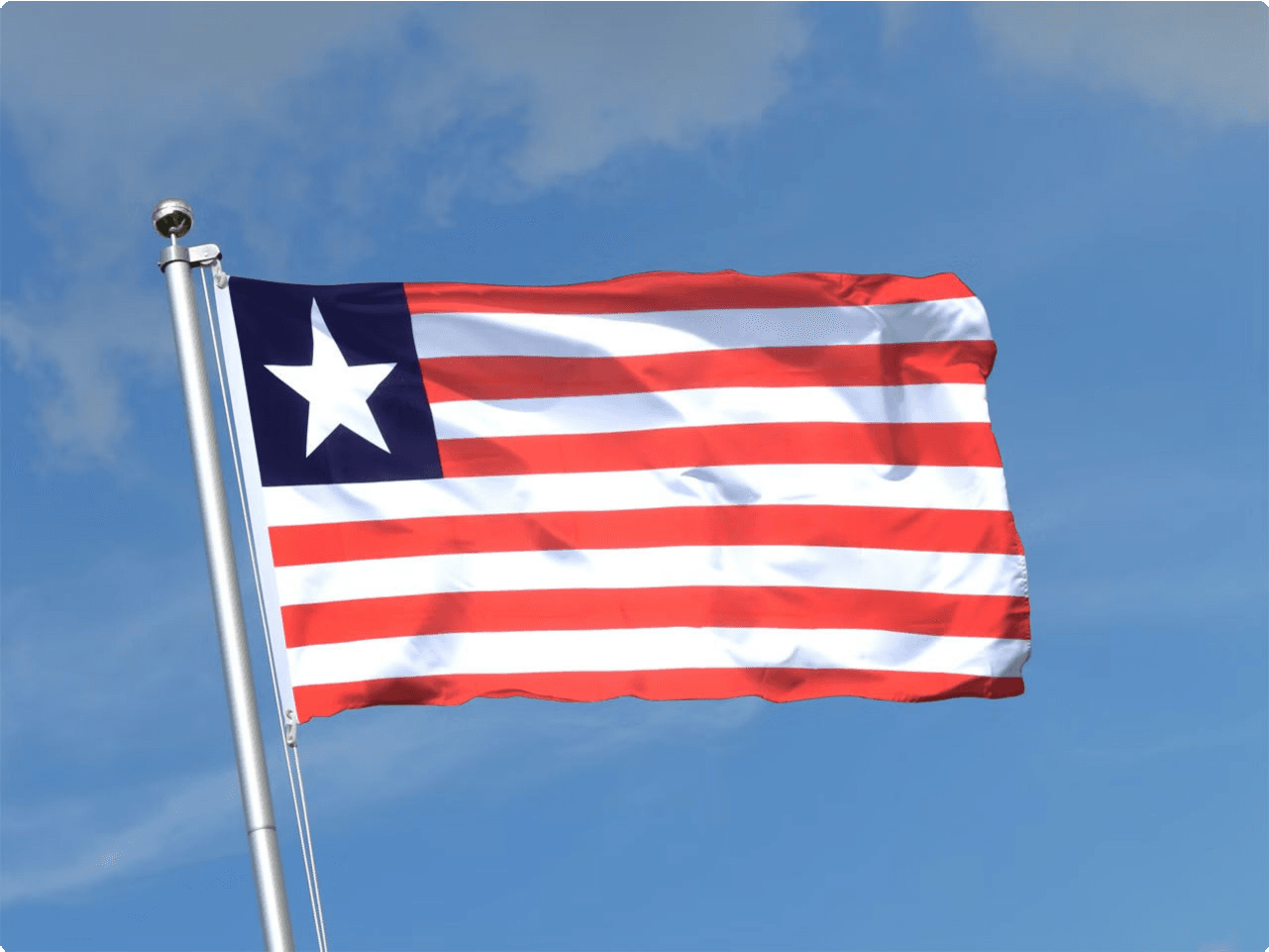
Each element of the flag holds deep significance, with the red and white stripes additionally symbolizing the signers’ acknowledgment of their duty to country and Liberia’s integrity. The flag was first adopted in 1847, the year of Liberia’s independence, and has since remained a powerful symbol of the nation’s rich history and commitment to freedom.
Map of Liberia
The map of Liberia provides a detailed overview of the country’s topography and infrastructure. It showcases the diverse landscape of Liberia, from the lush rainforests and coastal plains to the bustling urban centers. The map provides valuable information about the various cities, towns, and key landmarks, offering insight into the geographical layout of Liberia.

Historical maps of Liberia depict the country’s territorial acquisitions and the evolution of its boundaries over time. They provide a glimpse into Liberia’s colonial era, the impact of indigenous cultures, and the country’s development as a sovereign nation.
A political map of Liberia delineates the administrative regions, provinces, and districts within the country. It provides valuable insight into Liberia’s governance structure and organizational hierarchy, showcasing the distribution of local authorities and political boundaries.
Basic Facts about Liberia
History
Liberia, officially the Republic of Liberia, is a country in West Africa. It was founded by free people of color from the United States in the early 19th century. The country’s history is marked by the complex legacy of colonization, indigenous cultures, and its unique status as one of two African nations that were never colonized by a European power.
Geography
Liberia is bordered by Sierra Leone to its west, Guinea to its north, and Côte d’Ivoire to its east. The country has a diverse geography that includes rolling hills, dense rainforests, and a beautiful coastline along the Atlantic Ocean.
Independence
Liberia declared independence on July 26, 1847, making it the first African republic. This pivotal moment in history is celebrated annually as Liberia’s Independence Day, a national holiday marked by parades, cultural events, and fireworks.
Languages and Demographics
The country is home to 16 indigenous ethnic groups and various dialects, with English being the official language. The population is predominantly Christian, with a rich tapestry of cultural traditions and customs.
Currency and Economy
Currency: The official currency of Liberia is the Liberian dollar (LRD), which is abbreviated as “L$”. It is widely used for everyday transactions within the country. The currency is regulated and issued by the Central Bank of Liberia.
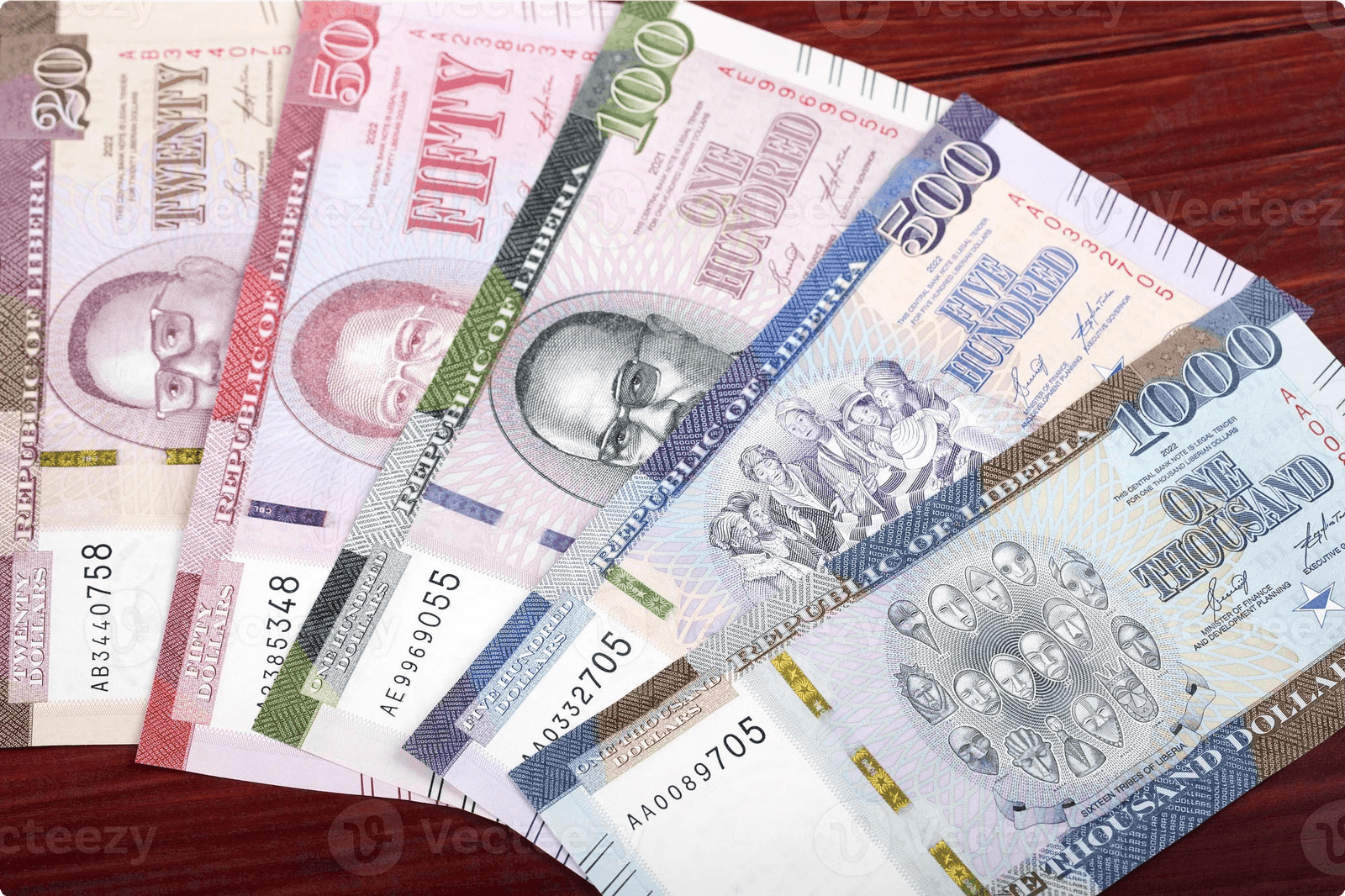
Economy Overview: Liberia’s economy is primarily driven by agriculture, mining, and small-scale manufacturing. The country is rich in natural resources including iron ore, timber, and rubber. The agriculture sector plays a significant role in the economy, with major products including rubber, palm oil, cocoa, and coffee.
Challenges: Despite the abundance of natural resources, Liberia faces economic challenges due to a history of civil unrest, the Ebola epidemic, and limited infrastructure. The government is focused on promoting economic growth, implementing reforms, and attracting foreign investment to diversify the economy.
Culture and traditions
Traditional Clothing: Liberians typically wear bright and colorful traditional clothing, which varies among different ethnic groups. The fabrics are often hand-woven and adorned with intricate patterns, symbolizing the rich cultural heritage.
Music and Dance: Music and dance play a vital role in Liberian culture. Traditional dances like the “Gede,” “Kru dance,” and “Bassa dance” are lively and rhythmic, often accompanied by vibrant drumming and colorful costumes.
Ceremonial Practices: Various ceremonies, such as initiations, weddings, and funerals, are important in Liberian culture. These events often involve traditional rituals, storytelling, and the passing down of ancestral knowledge to the younger generations.
Festivals and Celebrations: Liberians celebrate an array of festivals, including the Poro and Sande societies’ initiation rituals, the traditional mask festival, and Independence Day, with vibrant parades, music, and cultural displays.
Traditional Dances of Liberia
Cultural Richness
Liberia is renowned for its diverse traditional dances, characterized by vibrant and colorful costumes. Each dance tells a unique story, often depicting historical events, rituals, or daily life in the region. The energetic movements and rhythmic beats showcase the cultural richness and heritage of the various ethnic groups in Liberia.
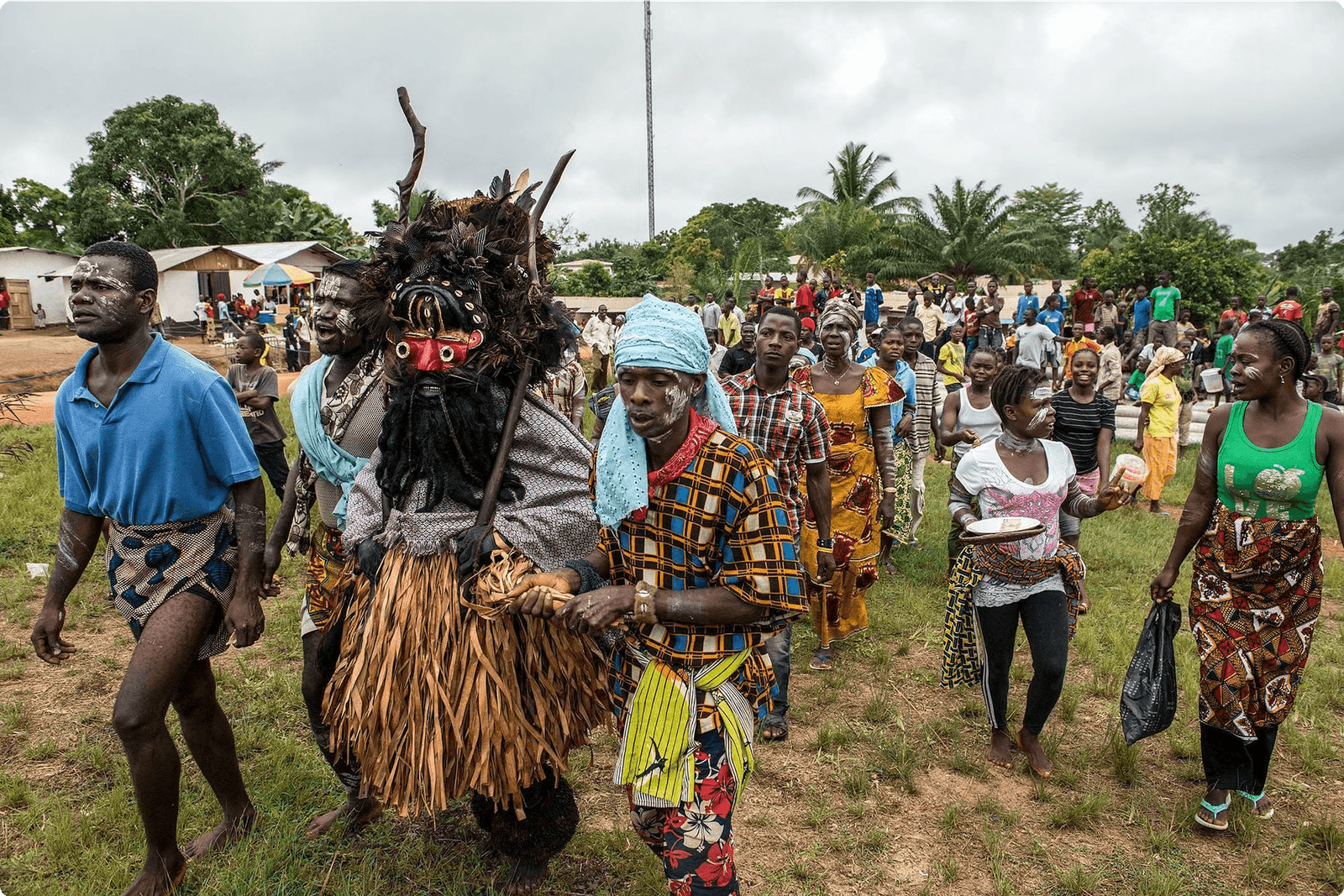
Spiritual Significance
Many traditional dances in Liberia are deeply rooted in spiritual and ritualistic practices. Masked dancers perform ancient ceremonies, invoking spirits and ancestors through intricate movements and traditional music. These dances hold immense spiritual significance and are an integral part of the country’s cultural identity.
Community and Celebration
Traditional dances serve as a means of community bonding and celebration. Festive occasions and cultural events often feature traditional dance performances, bringing together people from different backgrounds to celebrate their shared heritage and traditions.
Popular Liberian Dishes
Cassava Leaf Soup
Cassava leaf soup is a traditional Liberian dish made from the tender leaves of the cassava plant, slow- cooked with palm oil, onions, and various seasonings. The dish is often prepared with meat such as chicken, fish, or smoked pork, adding a depth of flavor to the rich and hearty soup. It is usually served with a generous portion of rice, making it a staple meal in many Liberian households.
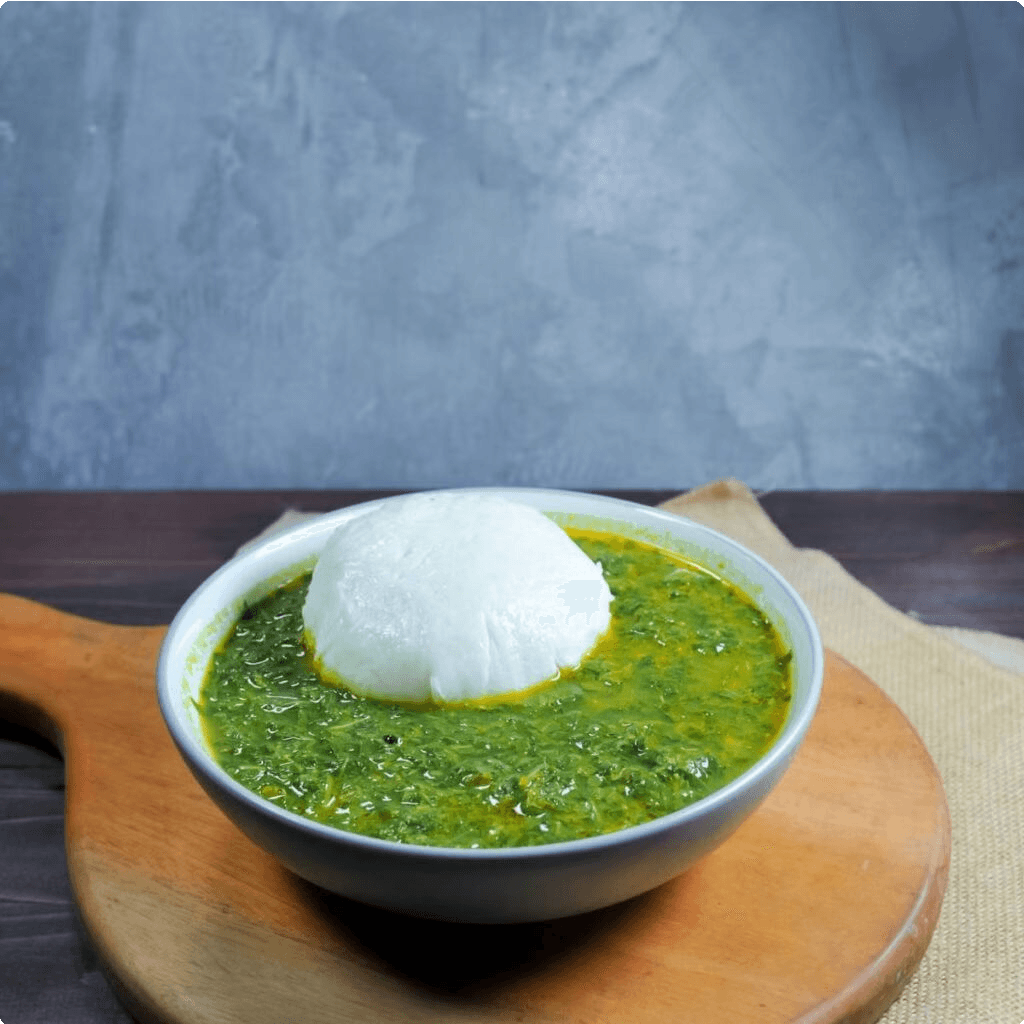
Jollof Rice
Jollof rice is a popular dish in Liberia, prepared with rice, tomatoes, onions, and a blend of spices. Often accompanied by chicken, beef, or fish, Jollof rice is known for its vibrant reddish-orange color and savory flavor. It is a celebratory dish often seen at gatherings, parties, and special occasions in Liberian culture.
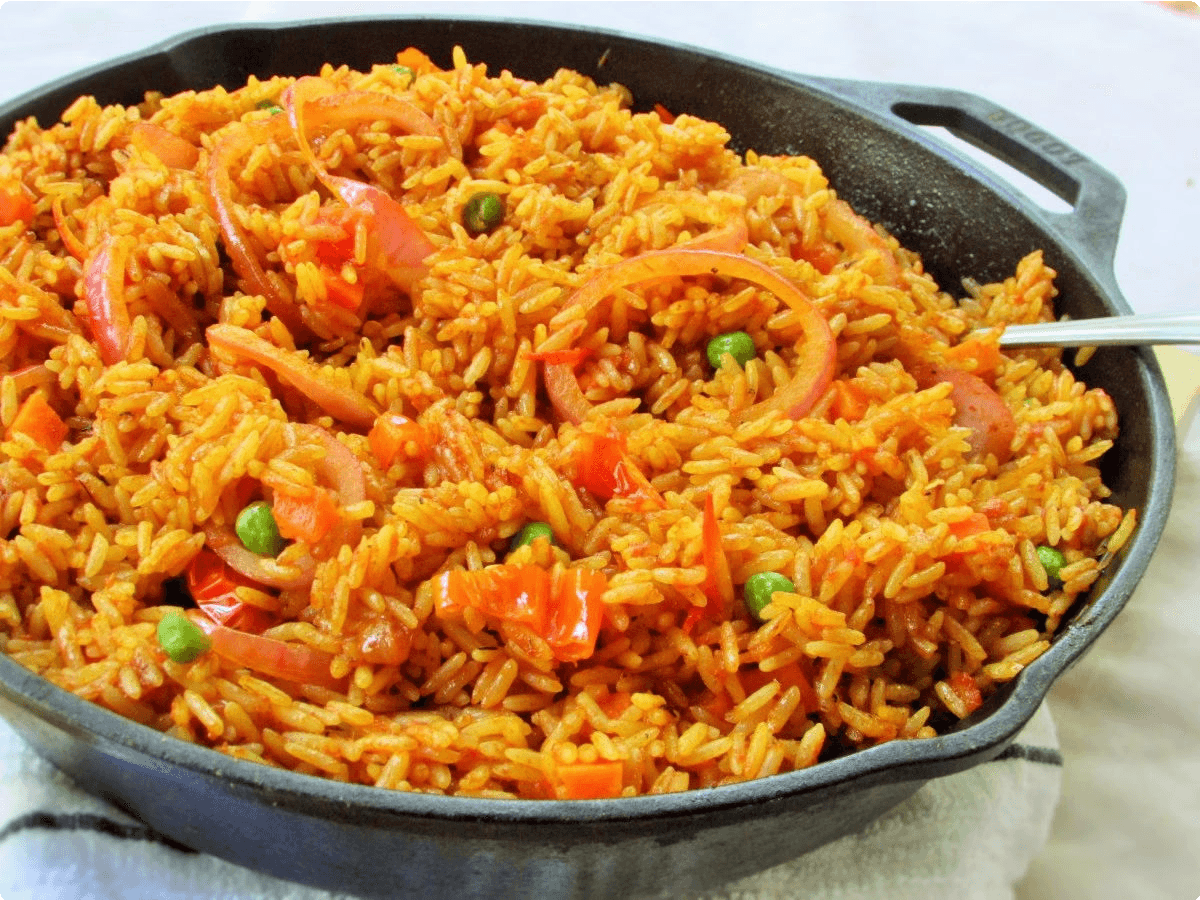
Fufu and Soup
Fufu, a staple food in Liberia, is made by pounding starchy vegetables like cassava, yams, or plantains until smooth and dough-like. It is commonly served alongside a flavorful soup, such as okra soup, potato greens, or pepper soup. Fufu and soup are often enjoyed as a communal meal, being shared from a single large dish, emphasizing the communal aspect of dining in Liberian culture.
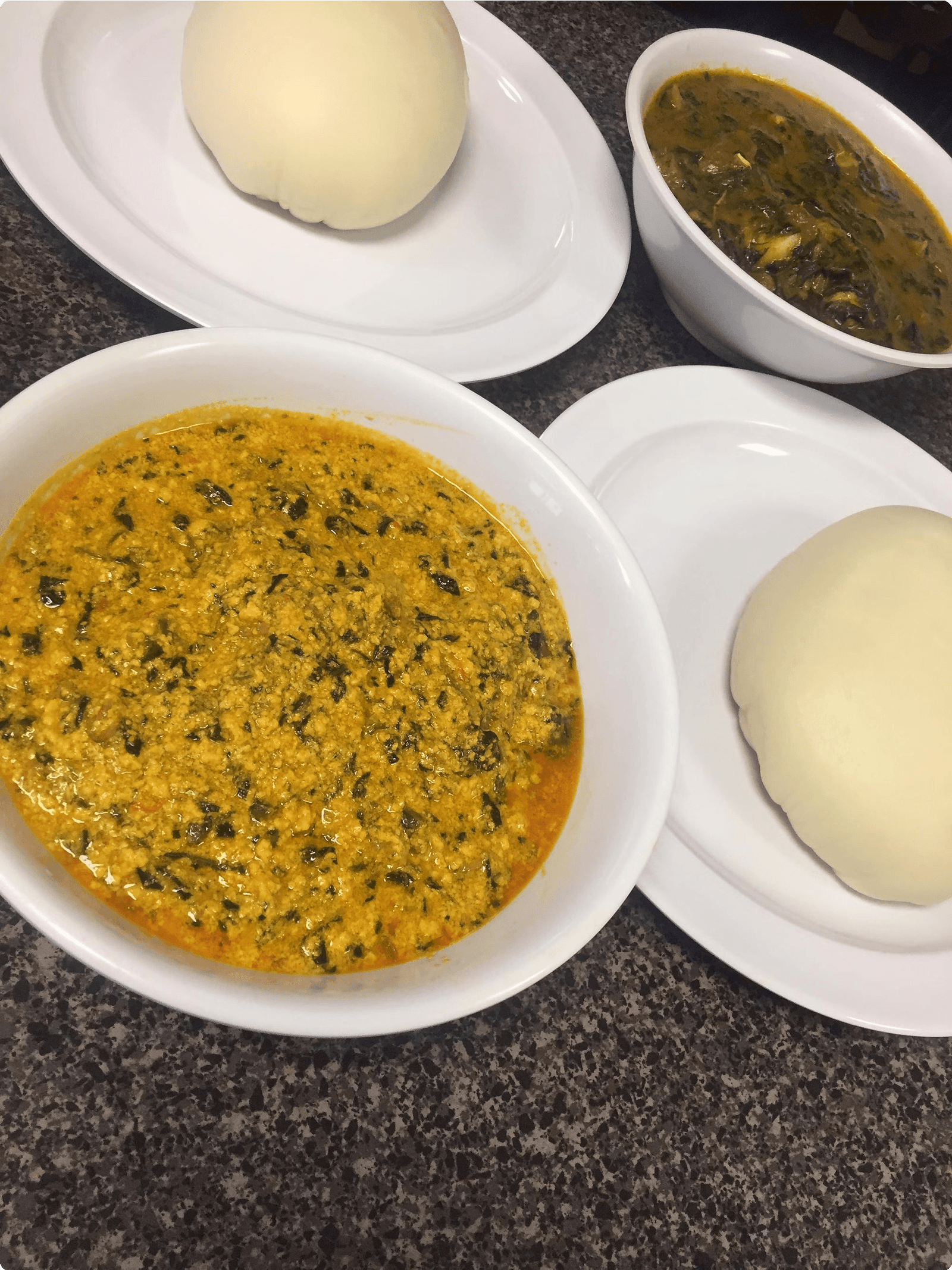
Famous Liberian Celebrities
Hollywood Representation
Liberia has seen the rise of talented actors who have made an impact on the international stage, bringing the nation’s culture and stories to global audiences.
Musical Maestros
Liberia boasts a rich musical tradition, and several acclaimed musicians have emerged from its vibrant music scene, contributing to the diversity and richness of African music.
Sporting Prowess
The nation has produced remarkable athletes who have excelled in various sports, showcasing the talent and determination of Liberian sports personalities.
Social Advocates
Liberia has been the home to influential activists who have championed important causes, advocating for positive change and social justice both nationally and globally.
Best cities to visit in Liberia
Monrovia: As the capital city of Liberia, Monrovia offers a vibrant mix of cultures and historical significance. Visitors can explore the bustling markets, visit historical landmarks like the Providence Island, and experience the lively music scene.
Buchanan: Situated along the coast, Buchanan is known for its stunning beaches and laid-back atmosphere. Travelers can relax on the pristine beaches, explore the local seafood cuisine, and immerse themselves in the rich coastal culture.
Ganta: This bustling commercial center in Liberia is a hub of trade and commerce. Visitors can experience the vibrant markets, delve into the local trade and industry, and indulge in the diverse culinary offerings.
Harper: Known for its scenic coastal beauty, Harper is a charming town with picturesque landscapes and a tranquil atmosphere. Travelers can enjoy the stunning coastal views, engage in water activities, and savor the peaceful ambiance.
Sanniquellie: Nestled amidst natural beauty, Sanniquellie offers a peaceful retreat for travelers. Visitors can explore the serene surroundings, engage in eco-tourism activities, and experience the welcoming local hospitality.
Monrovia, the capital city
Monrovia is the vibrant and bustling capital city of Liberia, situated on the Atlantic coast. The city is named in honor of James Monroe, the fifth president of the United States, and it is a melting pot of diverse cultures and traditions. Monrovia is not only the political and economic hub of Liberia but also a city with a rich history and a promising future.
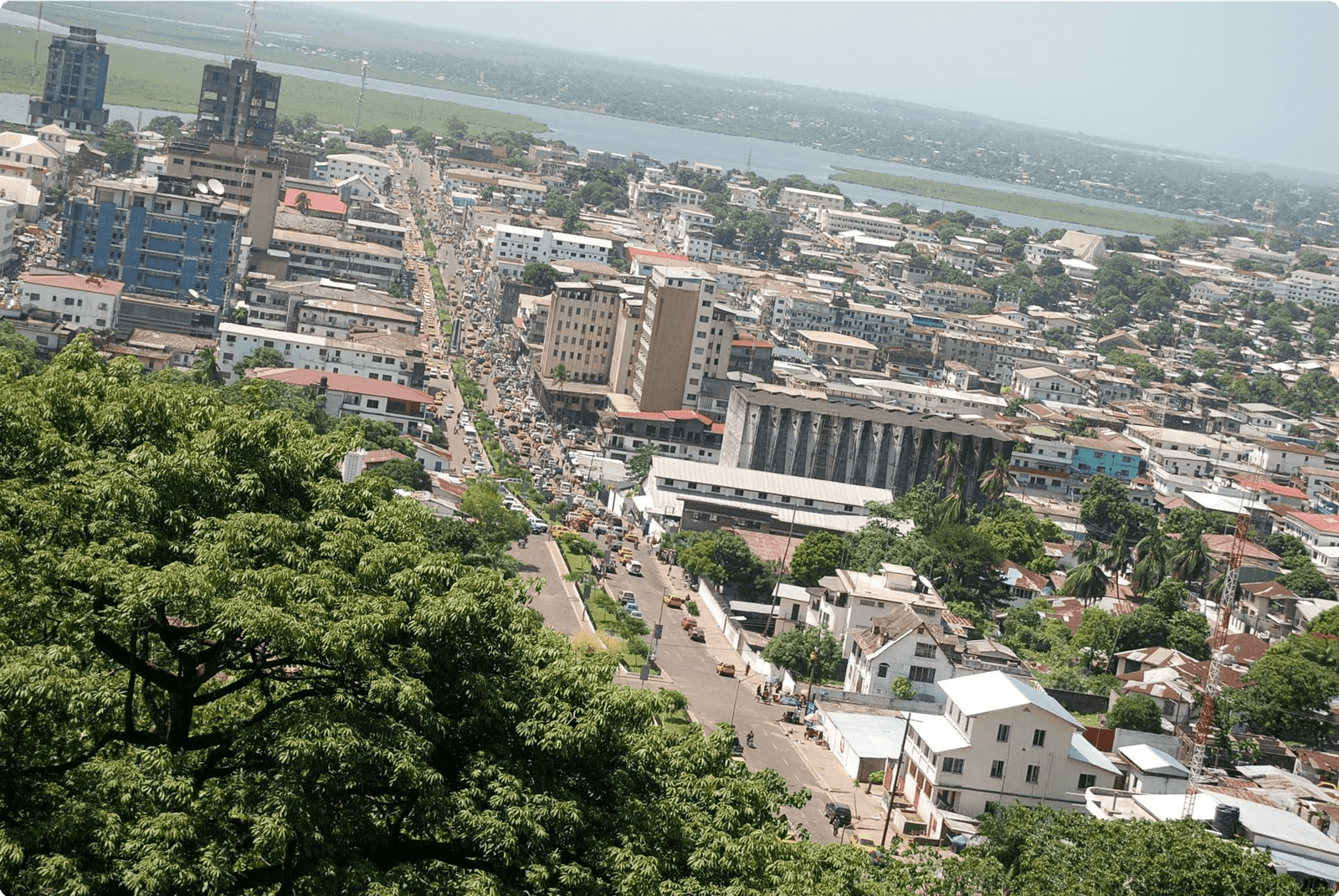
The city’s architecture reflects its varied past, with colonial-style buildings standing alongside modern skyscrapers. The mesmerizing view of the coastline adds to the city’s charm, offering captivating sunsets that leave a lasting impression. Visitors can explore the captivating markets, where local artisans showcase their craft, or dive into the bustling street food scene to savor the authentic flavors of Liberia.
Monrovia is a city of contrasts, where the modern meets the traditional, and the urban landscape is juxtaposed with pockets of natural beauty. With its lively nightlife, cultural festivals, and warm-hearted locals, Monrovia is a destination that promises a memorable experience for all who visit.
Buchanan, a coastal city
Buchanan is a charming coastal city located in Grand Bassa County, Liberia. It is renowned for its pristine beaches, vibrant culture, and historical significance. As you stroll along the palm-fringed shorelines, you’ll witness the captivating fusion of traditional Liberian heritage and modern influences. The city’s rich history is reflected in its colonial-era architecture, evoking a sense of nostalgia and wonder.
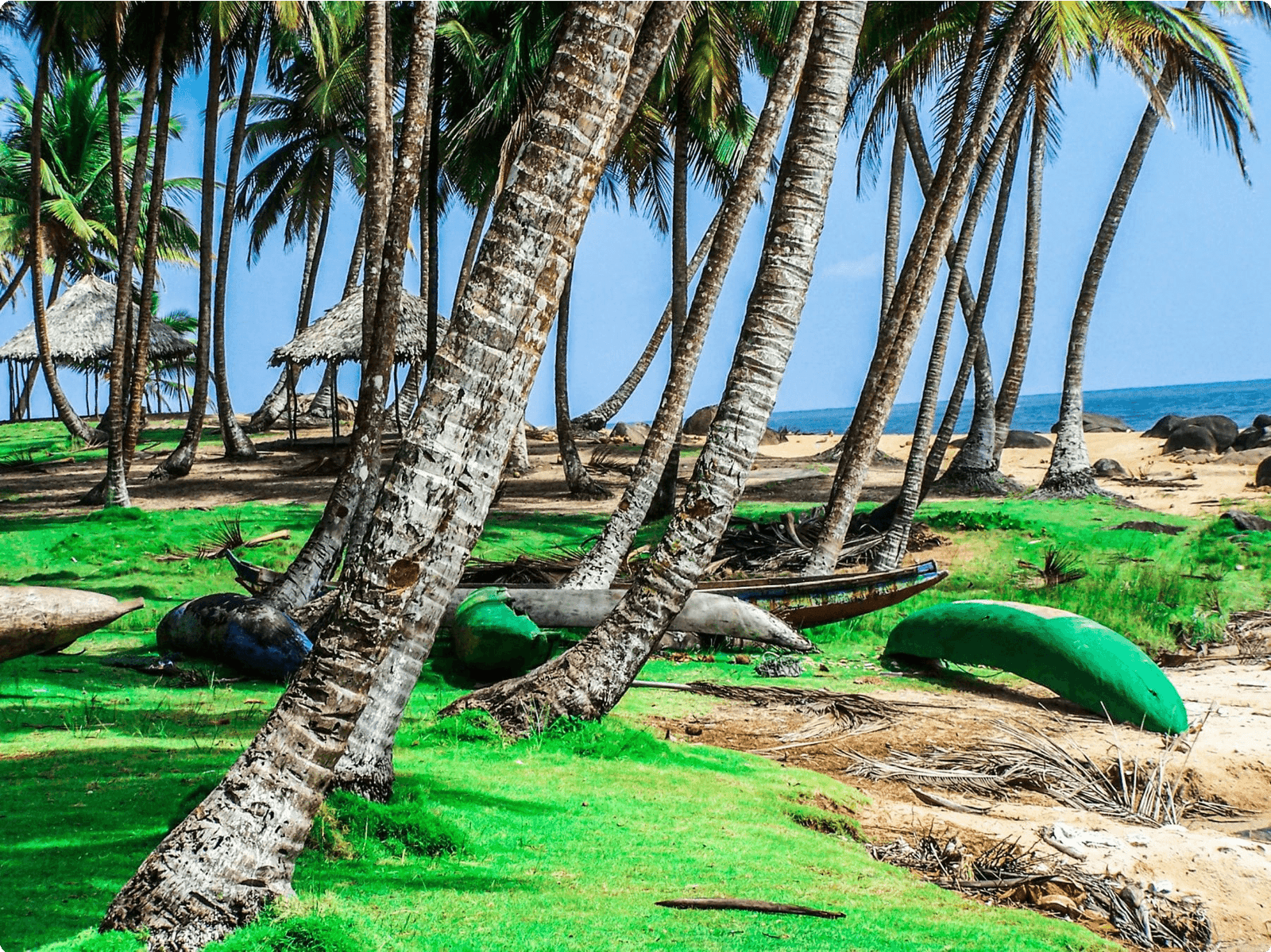
Visitors can immerse themselves in the local way of life by exploring the bustling markets filled with colorful textiles, artisan crafts, and delectable street food. The warm hospitality of the locals adds to the allure of this coastal gem, making it a must-visit destination for travelers seeking an authentic Liberian experience.
With its laid-back atmosphere and breathtaking coastal vistas, Buchanan offers a tranquil retreat from the hustle and bustle of urban life. Whether you’re lounging on the sun-kissed beaches, savoring fresh seafood delicacies, or delving into the city’s compelling history, Buchanan promises an unforgettable journey filled with warmth and authenticity.
Ganta, a bustling commercial center
Ganta, located in Nimba County, is a vibrant and bustling commercial center in Liberia. Known for its lively markets and entrepreneurial spirit, Ganta is a hub of economic activity in the region. The bustling streets are lined with shops, trading stalls, and local businesses, creating a lively atmosphere that showcases the dynamic nature of Liberian commerce.
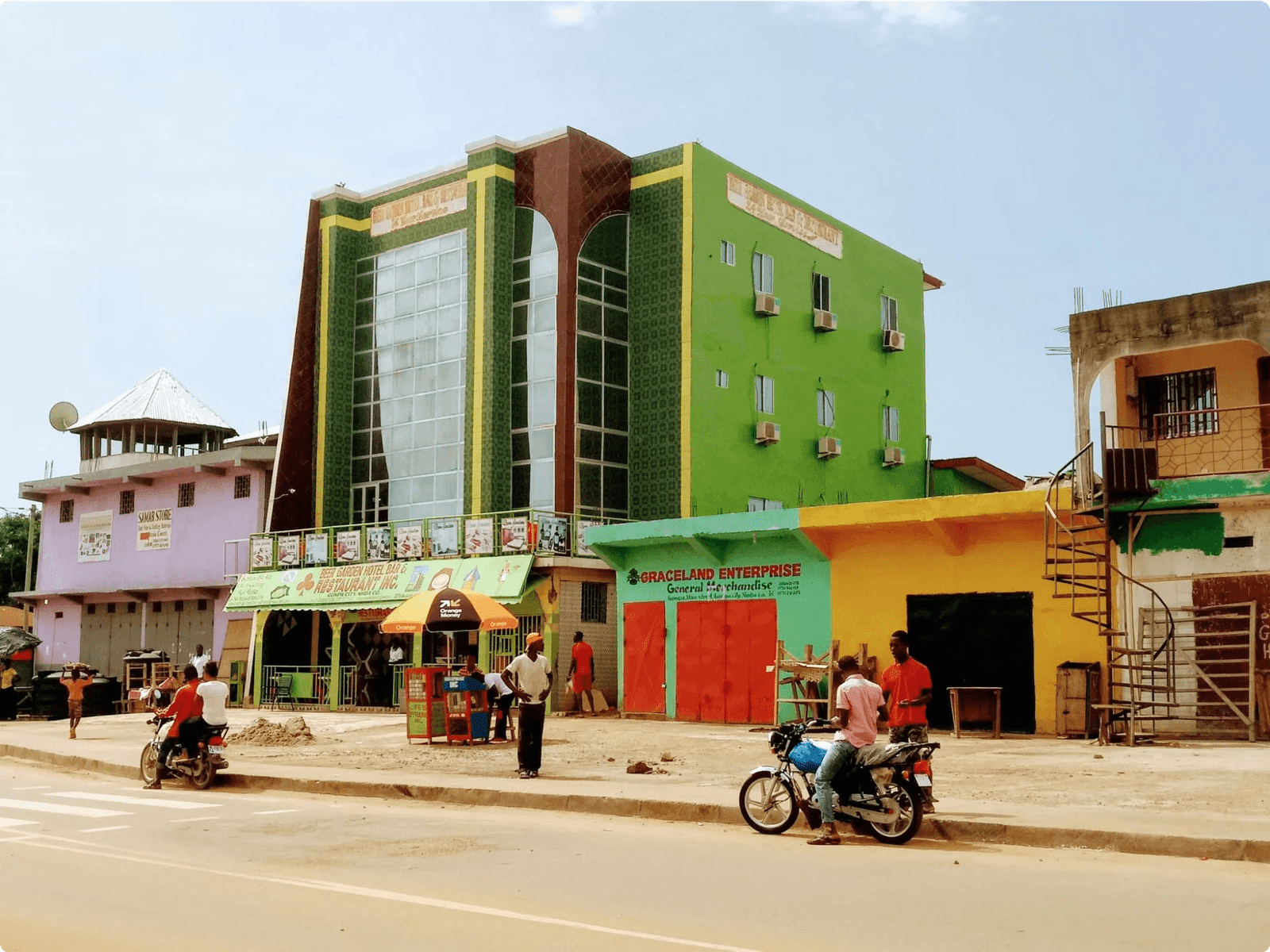
The town is also a significant transportation hub, with its strategic location connecting various regions and facilitating trade and travel. Visitors to Ganta will experience the energy of the local community and have the opportunity to engage with the diverse array of goods and services available in the town.
From colorful markets to bustling trade routes, Ganta offers a rich tapestry of economic and cultural experiences that make it a compelling destination for travelers seeking an authentic Liberian experience.
Harper, a Scenic Coastal Town
Harper, located in Maryland County, is a picturesque coastal town nestled along the Atlantic Ocean. Known for its stunning beaches with golden sands and crystal-clear waters, Harper offers a tranquil retreat for visitors seeking natural beauty and relaxation.
The town’s charming architecture reflects its rich history, with colorful colonial-style buildings lining the waterfront promenade. Visitors can explore the vibrant local culture, sample fresh seafood at seaside restaurants, and witness the daily rhythm of life in a traditional Liberian coastal community.
The lush surrounding landscape provides opportunities for hiking, birdwatching, and wildlife photography. Whether strolling along the tranquil shores or exploring the nearby tropical rainforests, Harper’s natural beauty is sure to captivate and inspire all who visit.
For a truly immersive experience, visitors can engage with the friendly locals, participate in cultural festivals, and discover the hidden gems of this idyllic coastal town. With its breathtaking scenery and warm hospitality, Harper is a must-visit destination for those seeking a unique and authentic Liberian experience.
Sanniquellie, a Peaceful Town
Sanniquellie is a picturesque town located in the Nimba County of Liberia. It is known for its serene and tranquil atmosphere, making it a perfect destination for those seeking a peaceful and quiet retreat. The town is surrounded by lush greenery and offers breathtaking views of the rolling hills and valleys, providing visitors with a sense of tranquility and harmony with nature.
The local community is warm and welcoming, and visitors can immerse themselves in the authentic Liberian culture. One can explore the vibrant markets, interact with the friendly locals, and learn about the traditional customs and way of life in Sanniquellie. The town also offers opportunities for nature walks, birdwatching, and experiencing the rich biodiversity of the region.
Whether strolling through the quiet streets or enjoying the scenic beauty, Sanniquellie provides a true escape from the hustle and bustle of urban life. It is a place where visitors can unwind, reflect, and appreciate the simple joys of life against the backdrop of Liberia’s natural splendor.
Best places to travel in Liberia
Sapo National Park: Explore the lush rainforest, diverse wildlife, and stunning waterfalls in this protected area. You can spot rare species such as pygmy hippos and West African river elephants.
Kpatawee Waterfall: Visit this picturesque waterfall surrounded by lush greenery. It’s a perfect spot for nature lovers and photographers, offering a refreshing and serene environment.
Providence Island: Immerse yourself in history at this significant site where freed slaves from America first landed in Liberia. Enjoy the beautiful coastline and learn about the island’s cultural and historical significance.
Mount Nimba Strict Nature Reserve: Embark on a trek through the stunning landscape of Mount Nimba. The reserve is home to rare species of flora and fauna, offering breathtaking panoramic views.
Lake Piso: Relax by the tranquil shores of Lake Piso and admire the scenic beauty surrounding this freshwater lake. Engage in fishing, birdwatching, or simply unwind amidst nature’s charm.
Sapo National Park
Sapo National Park is one of the most biodiverse areas in Liberia, located in the southern part of the country. It covers a vast expanse of tropical rainforest, offering an ideal habitat for a wide variety of flora and fauna. The park is home to numerous species, including pygmy hippos, endangered West African chimpanzees, forest elephants, and a diverse range of bird species.
The park provides a perfect setting for ecotourism, offering opportunities for hiking, birdwatching, and wildlife photography. The pristine natural beauty and captivating wildlife make Sapo National Park a must-visit for nature enthusiasts and conservationists.
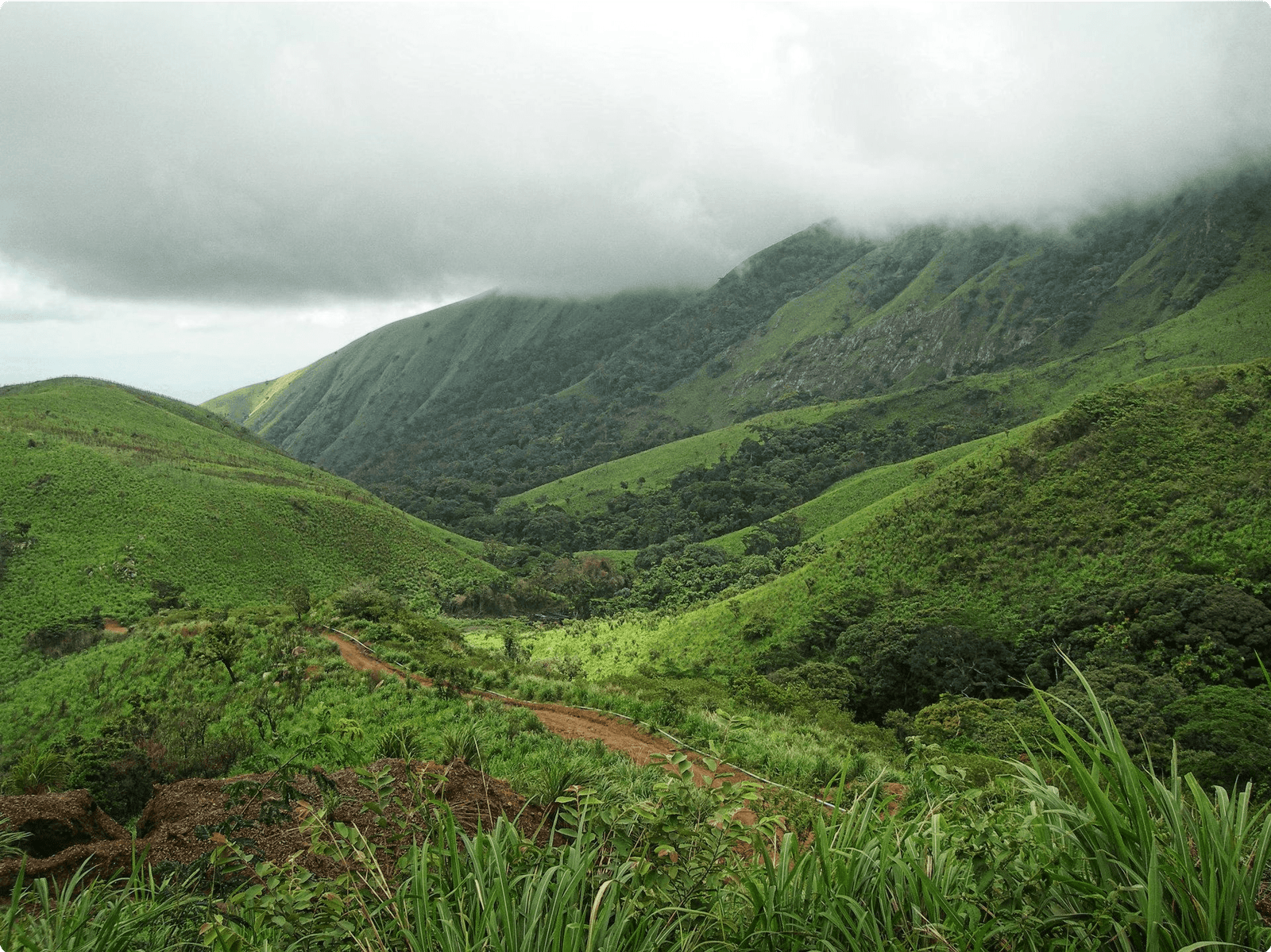
Visitors can experience the unique biodiversity of the park by embarking on guided tours, immersing themselves in the lush greenery and serenity of the rainforest. The park’s conservation efforts and captivating scenery make it a significant conservation area and a prime destination for nature lovers and adventurers.
In addition to its ecological significance, Sapo National Park also holds cultural importance, as it is home to local indigenous communities that have coexisted with the forest for generations, contributing to the preservation of traditional knowledge and practices.
Kpatawee Waterfall
Kpatawee Waterfall is a breathtaking natural wonder situated in the lush, verdant landscapes of Liberia. The cascading waters of the waterfall create a mesmerizing spectacle, drawing nature enthusiasts and adventurers from around the world. The serenity of the surrounding area makes it an ideal spot for relaxation and rejuvenation amidst the captivating beauty of the waterfall.
The verdant surroundings of Kpatawee Waterfall offer a peaceful retreat, perfect for nature lovers seeking to immerse themselves in the raw, unspoiled beauty of Liberia’s natural landscapes. Hiking trails lead visitors through dense forests and abundant flora, enhancing the sense of tranquility and connection with nature.
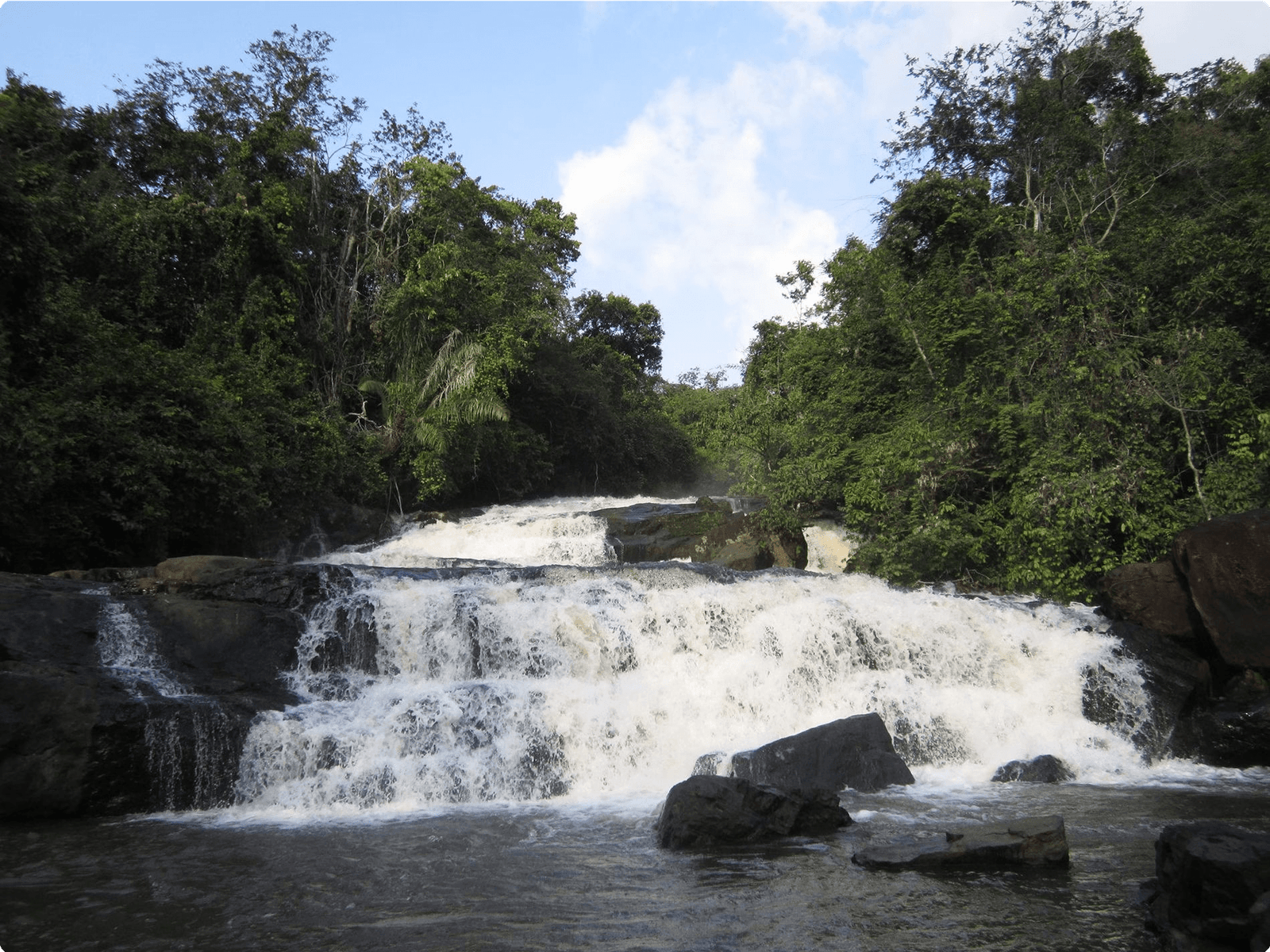
The picturesque setting of Kpatawee Waterfall provides a stunning backdrop for photography enthusiasts, offering ample opportunities to capture the allure of this natural marvel. Visitors can also indulge in a refreshing swim in the cool, crystal-clear pool at the base of the waterfall, adding an exhilarating element to the experience.
This enchanting destination is a testament to Liberia’s rich natural heritage and is a must-visit for travelers seeking an immersive encounter with the country’s awe-inspiring landscapes.
Providence Island
Providence Island, located off the coast of the capital city Monrovia, is a historically significant landmark in Liberia. It holds immense importance as it was the landing site of freed American slaves who established the first settlement in Liberia in 1822 under the auspices of the American Colonization Society. This small island symbolizes the beginning of the journey toward independence for thousands of former slaves.
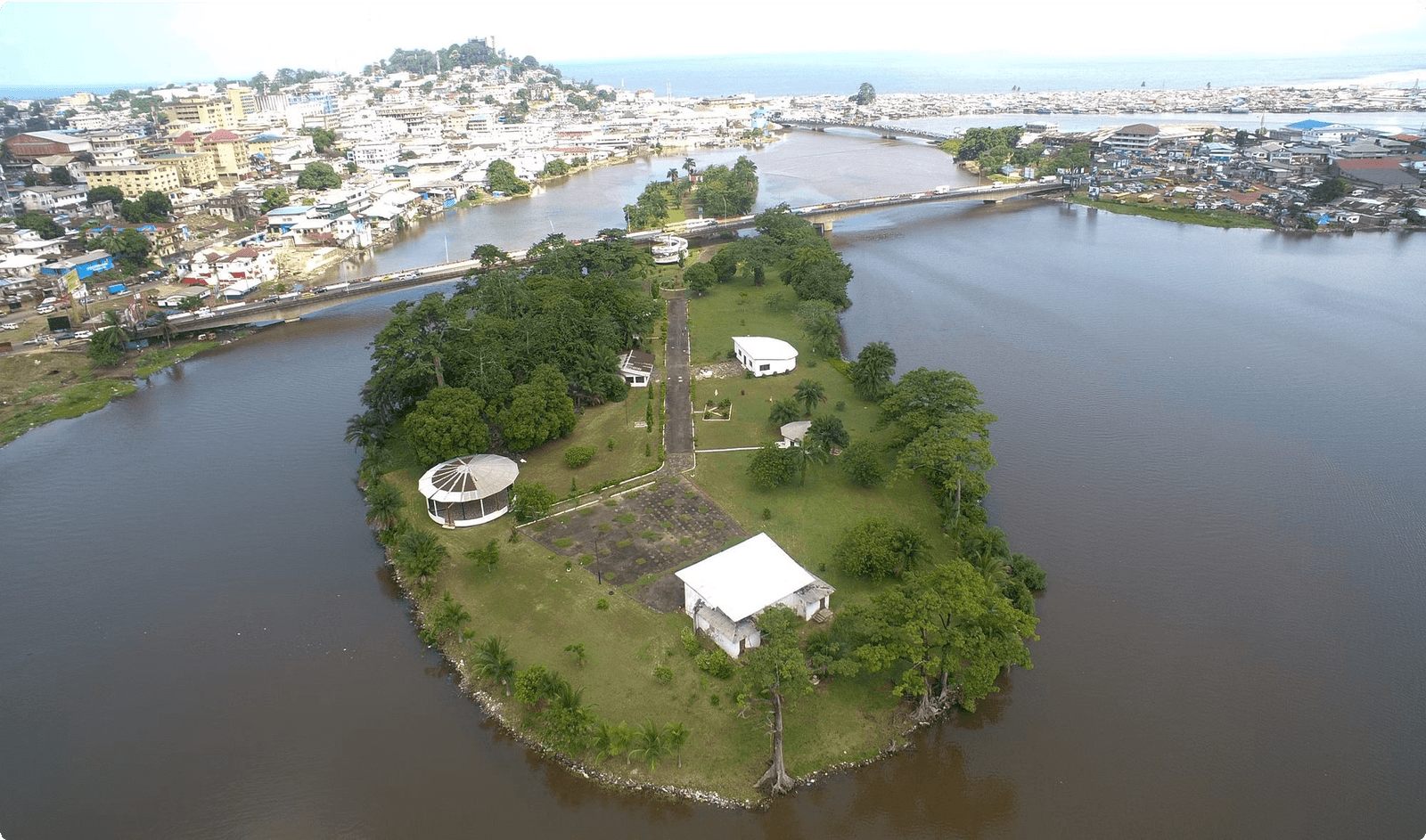
The island is home to several historical monuments and landmarks, including the Providence Island Church which stands as a testament to the enduring history of the settlement. Visitors can explore the church, which was built in the mid-19th century, and learn about its role in the founding of Liberia. The surrounding area offers picturesque views of the Atlantic Ocean and serves as a tranquil space for reflection and remembrance.
Additionally, the island’s proximity to Monrovia makes it easily accessible for tourists and locals alike. Its significance in Liberian history and its serene ambiance make Providence Island a must-visit for those eager to delve into the rich historical tapestry of Liberia.
For an immersive experience, visitors can partake in guided tours, allowing them to gain a deeper understanding of the island’s historical significance and the events that transpired there. Whether it’s to pay homage to Liberia’s roots, appreciate the natural beauty, or gain historical insights, a visit to Providence Island is a memorable and educational experience.
Mount Nimba Strict Nature Reserve
The Mount Nimba Strict Nature Reserve is a UNESCO World Heritage site located in the Nimba Range, straddling the borders of Liberia, Ivory Coast, and Guinea. This pristine natural reserve is known for its rich biodiversity, comprising lush rainforests and unique ecosystems. The reserve is home to numerous rare and endangered species, including the viviparous toad, western chimpanzee, and pygmy hippopotamus.
The diverse landscape of Mount Nimba includes rugged mountain peaks, cascading waterfalls, and crystal-clear streams, offering a haven for nature enthusiasts, hikers, and conservationists. Visitors can embark on guided treks through the dense forests to witness the region’s remarkable flora and fauna, with the chance to spot vibrant bird species and elusive wildlife.
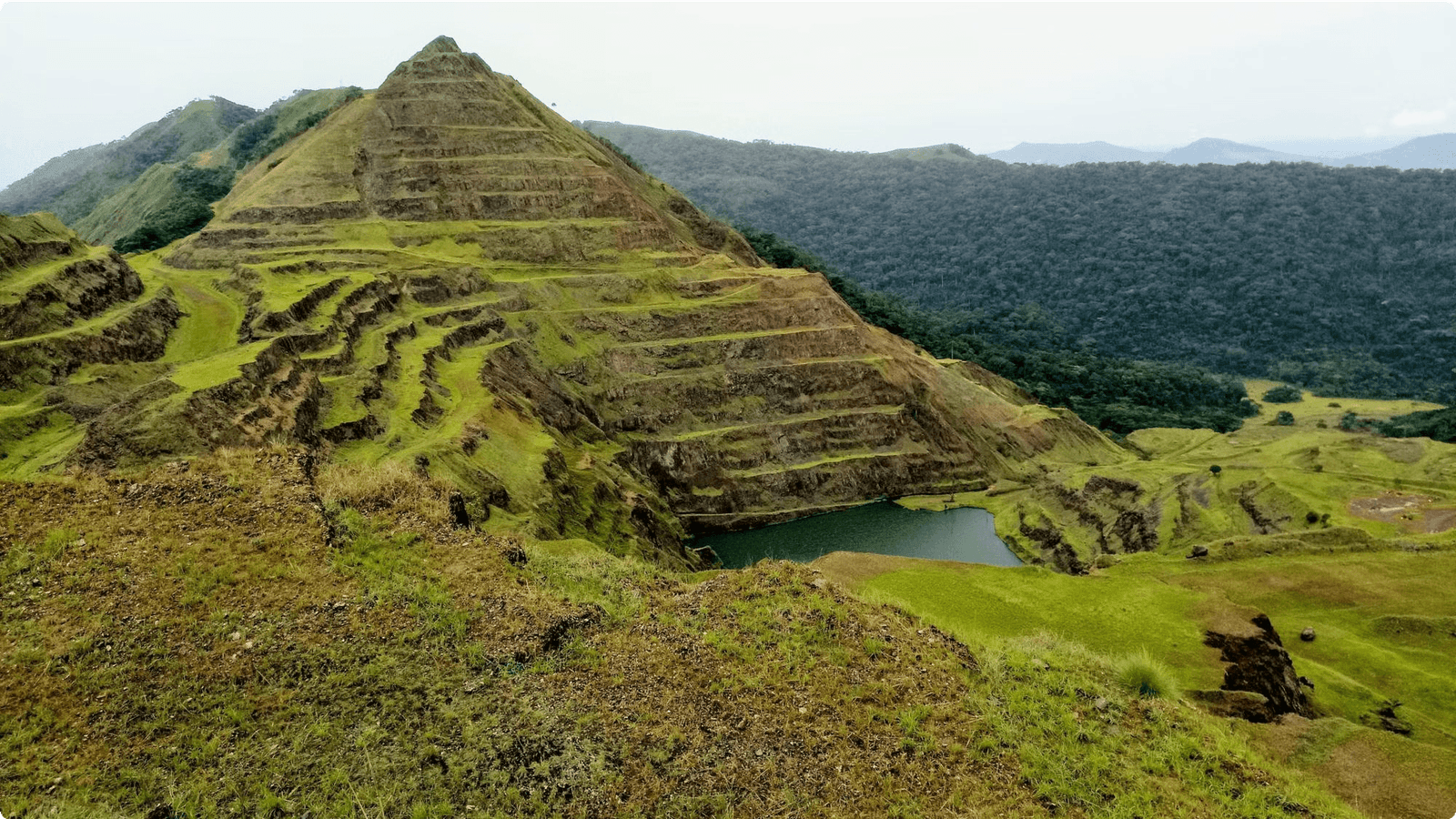
Exploring the Mount Nimba Strict Nature Reserve provides an opportunity to immerse in the unspoiled beauty of the natural environment, with breathtaking vistas and serene surroundings. The reserve serves as a vital ecosystem for ecological research and preservation, contributing to the global conservation efforts and promoting sustainable tourism practices in the region.
Visitors are encouraged to respect the delicate balance of the reserve’s ecosystems, follow designated trails, and adhere to responsible tourism guidelines to ensure the protection of this invaluable natural treasure for future generations.
Lake Piso
Lake Piso is a stunning natural attraction in Liberia, boasting breathtaking views and serene surroundings. Nestled in the picturesque landscape, this freshwater lake is a haven for tranquility and natural beauty. Visitors can indulge in various activities such as birdwatching, fishing, and enjoying peaceful boat rides on the glistening waters of Lake Piso.
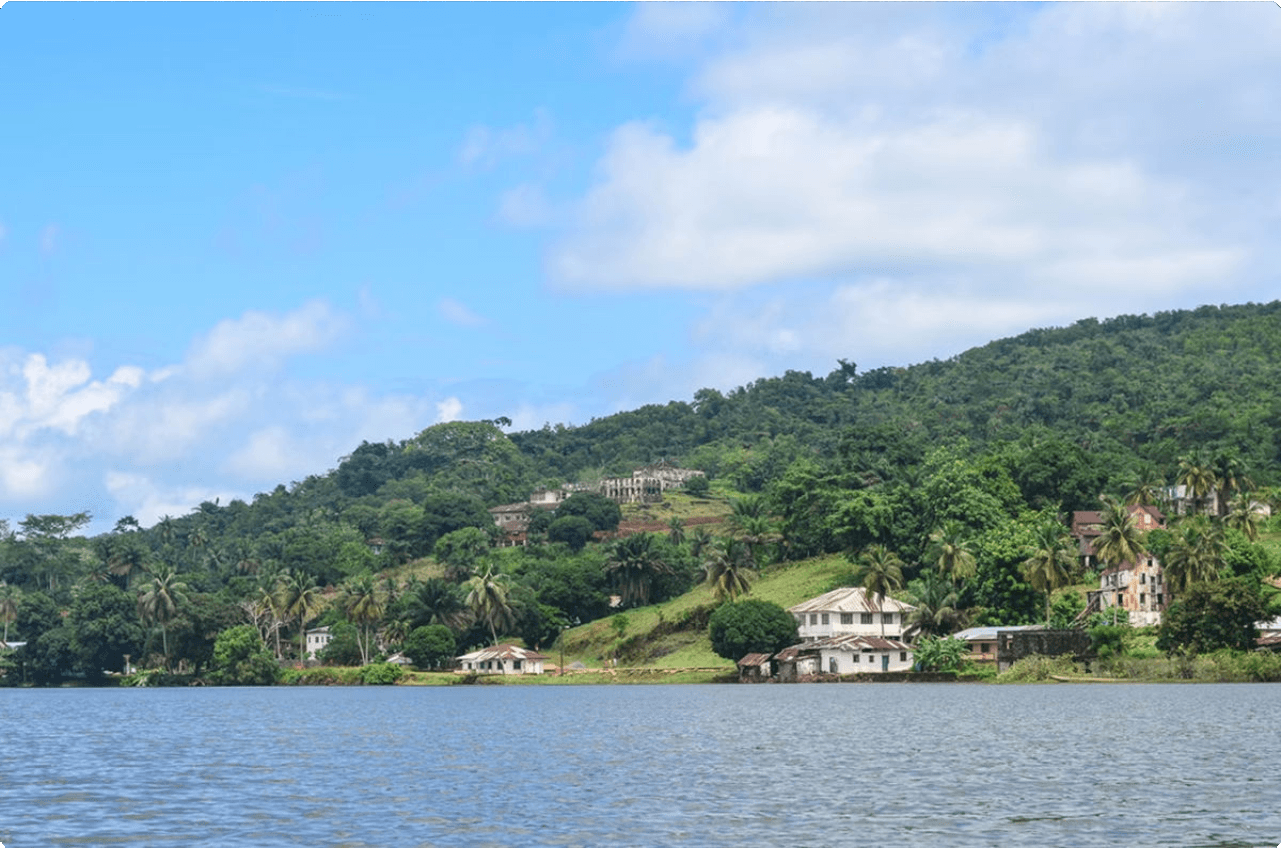
The surrounding area is rich in biodiversity, with lush vegetation and diverse wildlife, making it a paradise for nature enthusiasts and photographers. The calm ambiance and soothing sounds of nature create an ideal setting for relaxation and rejuvenation. It’s the perfect place to unwind and immerse oneself in the unparalleled beauty of Liberia’s natural wonders.
Exploring Lake Piso provides a unique opportunity to delve into the rich ecological tapestry of Liberia and appreciate its unspoiled natural landscapes. Whether it’s watching the sunset over the tranquil waters or simply taking leisurely walks along the shore, Lake Piso offers a truly magical experience for visitors seeking to connect with nature.
For a memorable and enchanting retreat in Liberia, a visit to Lake Piso is a must. It’s a captivating destination that captures the essence of the country’s unspoiled beauty and provides an unforgettable experience in the heart of nature.
Best time to visit Liberia
Dry Season: The best time to visit Liberia is during the dry season, which occurs from November to April. This period offers pleasant weather, making it ideal for outdoor activities and sightseeing.
Festivals and Events: Travelers planning a visit during the dry season can also take part in various cultural festivals and events that showcase the rich traditions of Liberia. From music and dance festivals to food and art exhibitions, there are plenty of exciting events to experience.
Wildlife Sightings: During the dry season, the wildlife in Liberia is more active, making it a great time for wildlife enthusiasts to explore the national parks and nature reserves. Birdwatching and wildlife safaris are popular activities during this time.
Best time to visit Liberia
When planning a visit to Liberia, it’s essential to consider the best time to experience the country’s natural beauty and cultural richness. The ideal time to visit Liberia is during the dry season, which typically lasts from November to April. During this time, travelers can explore the stunning national parks, historic landmarks, and vibrant cities without the interruption of heavy rainfall.
The dry season not only offers comfortable weather for outdoor activities but also provides excellent opportunities to witness traditional festivals and events that showcase Liberia’s unique heritage. From colorful parades to lively music and dance performances, visitors can immerse themselves in the rich culture of Liberia during this time of the year.
Moreover, the dry season allows for smooth travel across the country, as road conditions are generally better, and accessibility to remote destinations becomes easier. Whether you’re planning to hike through lush rainforests, relax on pristine beaches, or delve into the history of Liberia, the dry season offers the perfect backdrop for an unforgettable adventure.
Additional resources for travel to Liberia
Liberia Travel Guide: A comprehensive guidebook to Liberia, featuring travel tips, cultural insights, and must-visit destinations.
Liberian Cuisine: Explore the vibrant flavors of Liberian food with a curated collection of recipes and dining recommendations.
Local Experiences: Connect with local tour operators and guides to discover off-the-beaten-path adventures and immersive cultural experiences.
Health and Safety: Stay informed about health advisories, vaccination requirements, and safety tips for traveling in Liberia.
Language and Cultural Etiquette: Learn essential phrases in local languages and understand cultural norms to enhance your travel experience.
Tips for traveling to Liberia
Health Precautions: It is highly recommended to visit a healthcare professional at least 4-6 weeks before your trip to get the necessary vaccinations and medications for diseases like yellow fever, malaria, and typhoid.
Travel Insurance: Consider purchasing comprehensive travel insurance that covers medical emergencies, trip cancellations, and theft to ensure a worry-free travel experience.
Local Currency: It’s advisable to carry both cash and credit/debit cards. The official currency is the Liberian dollar (LRD), but US dollars are widely accepted.
Cultural Sensitivity: Respect the local customs and traditions, dress modestly, and ask for permission before taking photos of people or their property to ensure a positive interaction with the locals.
Safety Precautions for Traveling to Liberia
Health Precautions: Before traveling to Liberia, it’s essential to visit a healthcare professional to receive necessary vaccinations and medications. Yellow fever, hepatitis A and B, typhoid, and malaria prophylaxis are recommended. It’s also important to drink bottled water and avoid consuming unpasteurized dairy products and raw or undercooked food.
Security Measures: When visiting Liberia, it’s advisable to stay updated on the current political and security situation. Travelers should exercise caution, avoid public demonstrations, and be vigilant in crowded places. It’s also recommended to keep valuable belongings secure and be mindful of personal safety while exploring different areas.
Local Customs and Etiquette: Understanding the local customs and respecting cultural norms is important when traveling to Liberia. It’s recommended to dress modestly, particularly in rural areas, and to ask for permission before taking photos of individuals or specific sites. Learning a few phrases in the local dialect, such as greetings and simple expressions, can also enhance the travel experience.
Conclusion
In conclusion, Liberia offers a unique and diverse range of experiences for travelers, from its rich history and culture to its stunning natural beauty. Whether you’re exploring the vibrant city life in Monrovia or discovering the tranquility of Sapo National Park, Liberia has something to offer for every type of traveler. With warm and welcoming locals, delicious cuisine, and breathtaking landscapes, Liberia is a hidden gem waiting to be explored. As you plan your trip to this remarkable country, consider the safety precautions and travel tips mentioned in the additional resources section to ensure a smooth and enjoyable journey. Embrace the spirit of adventure and immerse yourself in the beauty of Liberia.
